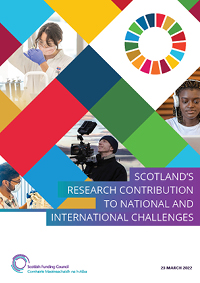SFC news published since 2018. See SFC archived content for earlier news articles.

Through the CommonHealth project at the Yunus Centre for Social Business and Health, GCU research has directly influenced shifts in thinking about how the impact of community-led ‘social enterprises’ generates health and well-being impacts. Furthermore, the Centre’s research into ecosystems and environments that support social innovation has led directly to the establishment of 21 Social Innovation Support Units in Latin America, Southeast Asia and five European regions.

